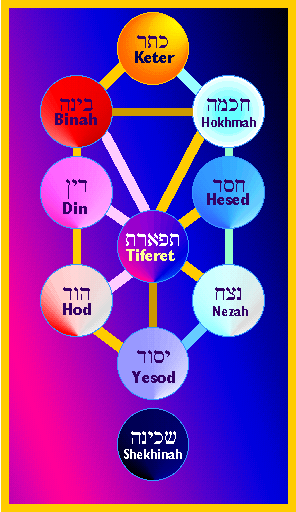The Path and Wisdom for Living at Peace with Others:
A Modern Commentary on Talmud Tractates Derek Eretz Zuta and Rabbah [Kindle Edition]
EXODUS 21:01 TO 24:18
RABBI ARTHUR L. SEGAL
Via Shamash Org on-line class service
Jewish Renewal www.jewishrenewal.info
Jewish Spiritual Renewal
Jewish Spirituality
Eco Judaism
Hilton Head Island, SC, Bluffton, SC, Savannah, GA
There are many times when I remember to be proud of being Jewish and of
our vast traditions. Reading this parasha brings me to one of those
exceedingly proud moments. Only two or so months have passed after our
first Pesach, and we are taught by Moses rules of societal behavior in the
middle of the Sinai wilderness
As modern Jews we harken back to the original late 1800 Pittsburgh platform of the first liberal movement
making the ritual laws of ''man to God'' optional, but keeping and doing the
mitzvoth of the ''man to man'' laws. While debate is certainly open to whether one should or should not obligate him or herself in all of God's mitzvoth, there is no doubt that our anthromorphic mitzvoth were far ahead of their time. In an electric letter received from
Rabbi Fred Davidow of Atlanta, he states, "As a general rule, Reform
Judaism would consider all the mitzvoth involving ethics and morals to be
binding." This parasha is chock full of these ''man to man'' laws. Most of
them today, in one form or another, form the basis of Western
democracies. We as modern Jews therefore might do well to study this
portion carefully.
All of these laws today are studied and discussed in our Talmud. I urge
you to read through a tractate or two. Perhaps you will obtain the desire to study Talmud. You will see that
Judaism was always a living religion and a way of life subject to
interpretation and adaptability over time and place. Many of these pasuks
(verses) are discussed in volumes in our great rabbinic literature.
Questions pondered in the Gemora section of the Talmud are intense.
In Ex 21:23-24, does "life for a life, eye for an eye" mean that
literally or do we mean monetary compensation? In Ex 22:24, when the
Torah says we should not charge interest for our loans, and not to pay
interest on loans, is it "kosher" to invite your loan officer to your
home for dinner? If there are so many laws that have the death penalty
as punishment, why does the Talmud say that a court that issues a death
penalty more than once in seventy years is a "bloody" court?
Before one can even begin to understand these laws or to undertake an
acceptance of these man to man ethical laws, we need to ask "why." Why
"should" we do good to our fellow man? Why can't we steal if we can
overpower another? Why aren't our individual lives more important than
another's? The answer lies subtly in the parasha of last week,
specifically in the order of the Ten Utterances.
Before we can do good to our fellow man, we must accept God as the
creator and true judge of all. If good and evil are separated from God,
they become no more than personal opinion. We have seen too often in
history that God without ethics and ethics without God has led to evil.
So the first three commandments command us to know and love God.
In the 1,000-year-old text "Duties of the Heart," which reads as new today as
any self-help book, Rabbi Bachya Ibn Paquda, of Spain, develops his logical syllogism on
the belief in God as the creator of all. Hence we are all His children,
and by doing good with our trained hearts, we are doing God's will.
Without God, no act is holy. With God, all of our acts can be made holy
and can help us get closer to God and develop our own spirituality.
The fourth commandment is about Shabbat. It is a gift from God. Granted,
historically, we know that the Babylonians set aside special days of the
month on their lunar calendar (the 7th, 14th, 19th, 21st, and 28th
days). They could not cook foods, ride in a chariot, discuss work or
politics, reveal oracles, or heal the sick. These were not Shabbats, not
days of rest, but unlucky days to do the above mentioned tasks. If we do
not love and accept God, we will not accept this gift of our Jewish
Shabbat. And if we do not love ourselves to take time out for rest and
our OWN soul's nourishment, how can we love another and do good for
another?
The fifth commandment is to honor our parents.
Can a person with self-hate, who doesn't believe in God,
truly honor his mother and father? And can a
person, who has no love for his parents, truly love strangers and see
them as brothers and sisters of the same Holy Parent? Is this why these first
five commandments are presented before the last five, which deal with
relations between man and man?
Rabbi Samson Hirsh, a Frankfurt nineteenth-century scholar (and no friend
of the German Reform movement), wrote that Torah (tav, vav, reish, hey)
comes from the root word "to conceive" (hey, reish, hay). He says that the goal
of Torah is to plant God's words in our minds and hearts so that we can
cultivate them and manifest them in our good deeds. He says we must
accept God outwardly and bring Him inside of us so that we can produce
good deeds outside. He was in battle with the ethical humanists of his
time, who cast off God given proscribed behaviors, and wanted to develop
moralistic personalities from inside.
The role of Mishpat, from our parasha Mishpatem, is the performance of
justice. The performance of justice is not just a divine occupation. The
world without justice (tzaddakah) is rebelling against what Locke called
Natural Law. When we perform acts of justice, we become a partner with
God in doing Tikun Olam (repairing the world). We therefore are all
elohim (dispensers of justice). "Every judge who judges with complete
fairness even for a single hour, is as though he had become a partner to
the Holy One, in Creation" (Talmud Bavli Tractate Shabbat 10A).
When we do good deeds to our fellow man, and follow the ethics in the
Torah that we as liberal Jews embrace, we help bring the Shechinah (God's holy Presence) into
the world, a Midrash teaches. Man has the capability of bringing the
divine presence of God into each of our hearts by treating our fellow
humans justly and with love.
The writers of the Kabbalah (Isaac Luria et al.), described ten sefirot
(countings, levels) of God's nature that if would be nice if we achieved
for ourselves. The sefirah of judgment (din), also called gevurah
(power), represents the fearsome powers of divine punishment and wrath in
the world. This power, it is posited, is needed to maintain control over
the universe. This power also contains the seeds of demonic evil, also
known as the "other side" (sitra ahra). God's name when He dispenses din
is Elohim. It appears on the left side of the kabbalistic "map." The
sefirah of chesed (loving kindness or compassion or love), also called
gedullah (greatness) ,represents the generous, benevolent side of God,
best shown in man by Abraham. God is known as El or El elyon when he
shows chesed, and this trait appears on the right side in kabbalistic
terms. Luria says there are seventy-two bridges of chesed.
The right side represents attributes of chakmah (wisdom), chesed (love),
and nezah (eternity), while the left side represents binah
(understanding), din (justice), and hod (glory). We can see how the left
side without balance from the right can lead to evil, while the right
side without the left can lead to weakness.
Wisdom seeking, like a cave-dwelling monk without real life understanding,
is not a Jewish concept. Knowledge without wisdom can lead to disaster. Too much mercy without
justice leads to anarchy, while too much justice without mercy leads to
totalitarianism. The middle column brings us tiferet (beauty) with a
strong foundation (yesod) , leading to a divine crown (keter), and a
oneness with the Godhead, the Ein Sof, the Unknowable Infinite. This
middle represents the ideal balance of mercy and justice. This harmony
the Kabbala teaches is important for the survival of the universe.
The beauty of this week's parasha is in its combining of everyday
societal problems with a relationship with God. Judaism takes the
everyday and makes it holy. We take what some religions consider profane
and make it divine. The Talmud teaches that it is a sin to be offered a
new fruit you have never tasted before and refuse it. Our religion
glorifies relations between husband and wife. And we make holy our
relationships with one another, when we truly are a Keneset Yisroel, the
people of Israel, the children of the One God.
We need, as the saying goes, to think globally but to act locally.
Let's keep our eyes on our own
behaviors instead of judging our fellow congregants, officers, rabbis, and cantors, and
let's work to make our own temples, shuls, and synagogues places where
the Shechinah would be happy to dwell.
Shabbat Shalom,
RABBI ARTHUR SEGAL
Via Shamash Org on-line class service
Jewish Renewal www.jewishrenewal.info
Jewish Spiritual Renewal
Jewish Spirituality
Eco Judaism
Hilton Head Island, SC, Bluffton, SC, Savannah, GA







